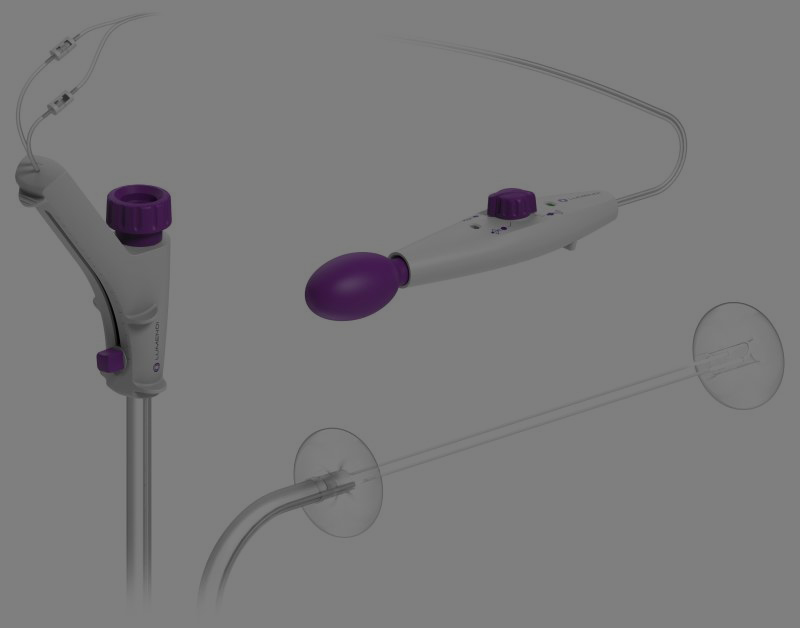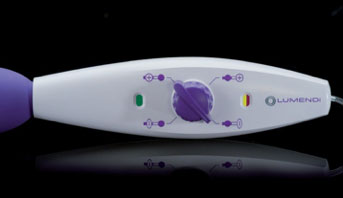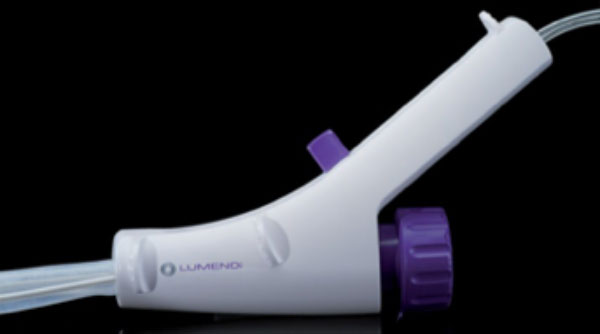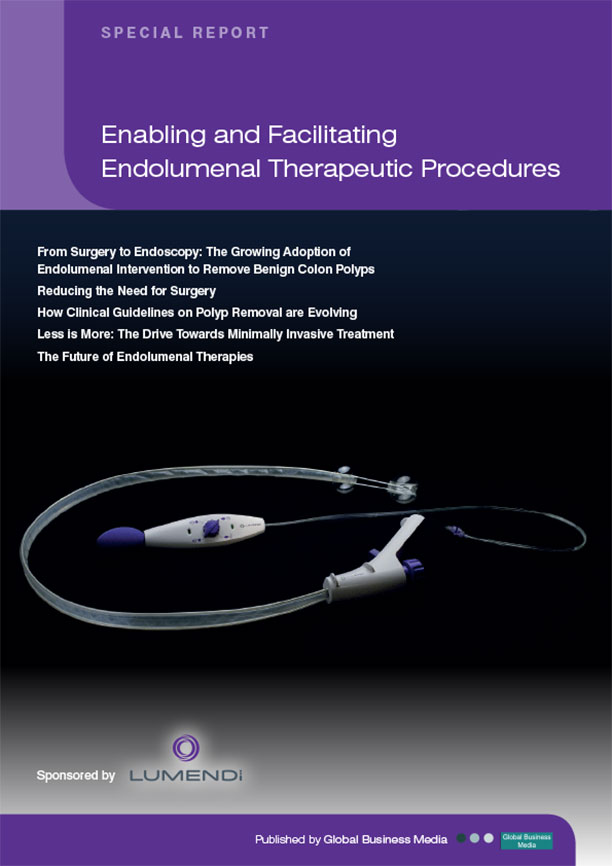SPECIAL REPORT
Enabling and Facilitating Endolumenal Therapeutic Procedures

DILUMEN EIP THERAPEUTIC ZONE (TZ)
From Surgery to Endoscopy: The Growing Adoption of Endolumenal Intervention to Remove Benign Colon Polyps
In late 2016, Lumendi., a medical device company headquartered in the U.K., received clearance in the US for an innovative technology specifically designed to assist in removing large benign polyps from the colon, thus obviating the need for surgical intervention.

DILUMEN™ SYSTEM WITH DOUBLE BALLOON THERAPEUTIC ZONE, PUSHROD CONTROL HANDLE AND BALLOON INFLATION HANDLE
Reducing the Need for Surgery
Depending on the position and size of the polyps, the removal procedure can present a number of risks. In an ideal world, these can be removed via an endoscopy but, if the polyps are large, have a broad base or are located in an anatomically inaccessible position, they may require more invasive interventions. These may include a laparoscopy, or open surgery both of which increase the risk of complications setting in.

DILUMEN C² GRASPERS AND SCISSORS INSTRUMENTS
How Clinical Guidelines on Polyp Removal are Evolving
The studies analysed by NICE also show that seven patients had to be switched to open surgery during the procedure. This may be necessary in more advanced cases which need a larger incision in the abdomen. The surgeon then removes part of the colon to fully ensure all of the polyps and any associated cancer have been removed.

DILUMEN™ INFLATION HANDLE
Less is More: The Drive Towards Minimally Invasive Treatment The Future of Endolumenal Therapies
The tip of a flexible insertion tube can be bent vertically and horizontally, and manual insertion can be combined with rotation of the entire endoscope. Light is transmitted to the tip of the endoscope from which a chip sends image signals back from the camera lens to a monitor.

DILUMEN™ PUSHROD CONTROL HANDLE
The Future of Endolumenal Therapies
Artificial intelligence (AI) attracts a huge amount of attention – some of it justified, some not. A study in Shanghai found that an AI system could improve adenoma and polyp detection rates in colonoscopy.

Download PDF:
Lumendi Hospital Reports11 April 2019
